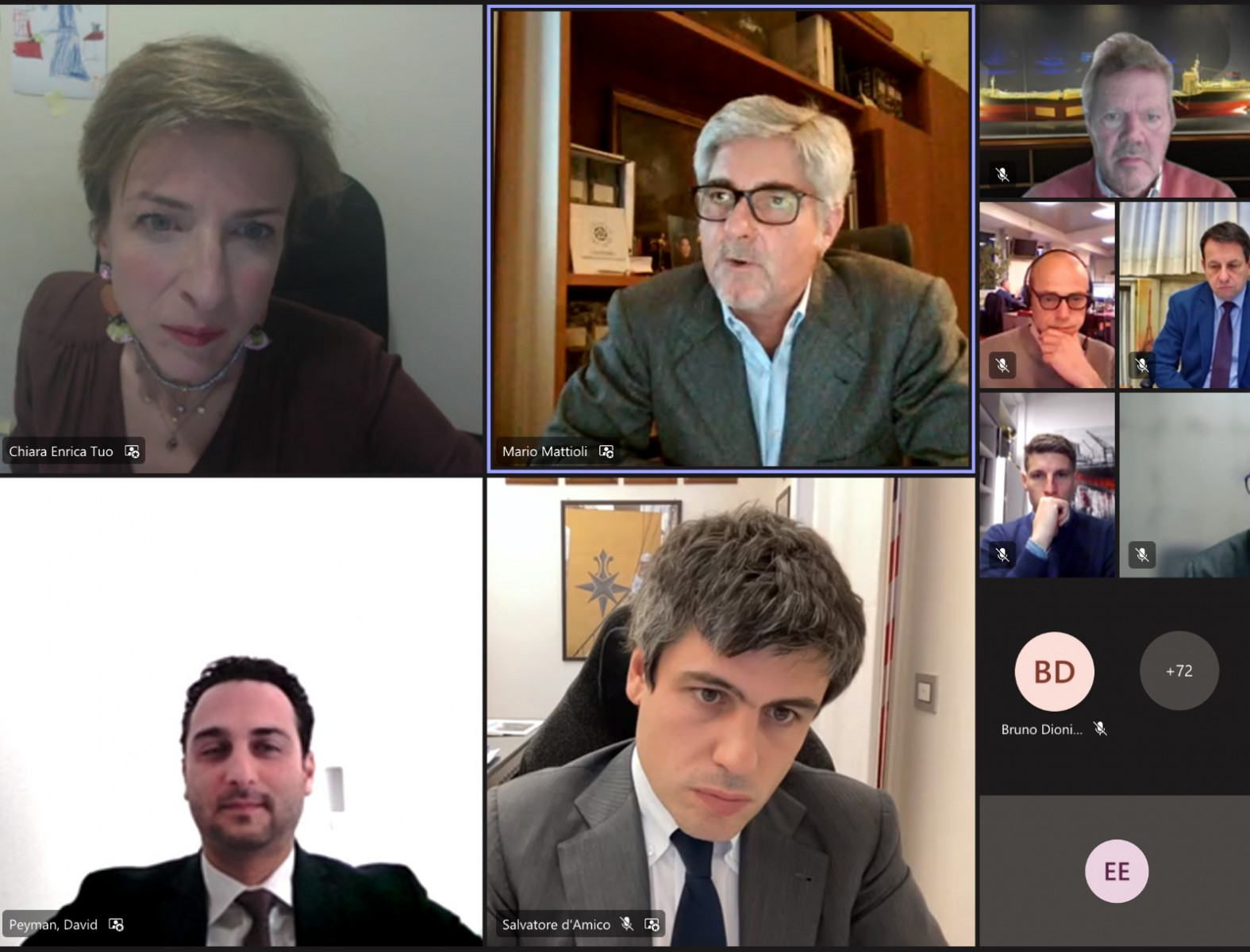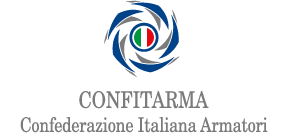
ROMA – Il 21 marzo il Gruppo Giovani Armatori ha organizzato il webinar ” US and EU sanctions in response to Russia-Ukraine crisis. The impact on the maritime sector”. I relatori dell’evento sono stati David Peyman, consulente presso DLA Piper LLP (US), ex Vice Assistente Segretario di Stato per le Controminacce Finanziarie e Sanzioni USA, e Chiara Enrica Tuo, Professore Ordinario di Diritto dell’Unione Europea all’Università di Genova e Partner presso lo Studio Legale Carbone e D’Angelo.
David Peyman, nel suo discorso intitolato “Navigating Russia Sanctions and Other HighRisk Jurisdictions: How to Mitigate Risk & Add Value in the Maritime Sector”, dopo una panoramica sulle recenti sanzioni contro la Russia (in particolare quelle che hanno un impatto su soggetti non statunitensi), ha illustrato l’evoluzione dal 2019 nell’atteggiamento del Governo USA rispetto all’attuazione e all’applicazione delle sanzioni spiegando come poter rispondere efficacemente alle stesse. In particolare, ha evidenziato che molte aziende si affrettano ansiosamente a reagire a ciascuna sanzione, invece di studiare un piano strategico a lungo termine. Peyman ha descritto come le multinazionali possano stabilire partnership con il Dipartimento di Stato e l’OFAC (The Office of Foreign Assets Control) per mitigare i rischi vigenti, anticipare quelli futuri e valorizzare il proprio business. “Il governo degli Stati Uniti preferisce che siano le aziende più responsabili quelle che possono intraprendere affari anche in giurisdizioni ad alto rischio, e a tal fine ha emanato disposizioni affinché le aziende con politiche conformi possano intraprendere tali attività”. La proficuità di tale approccio di mutuo coinvolgimento rimane valida anche guardando al futuro (per esempio rispetto a Cina, Iran e Venezuela).
Inoltre, Peyman ha precisato che il settore marittimo deve avere una visione chiara dei metodi di pagamento consentiti: la consegna materiale di dollari americani alla Russia non è consentita, mentre effettuare e ricevere bonifici con la Russia è permesso a meno che non ne traggano beneficio le entità russe sanzionate (è necessario uno screening costante dei soggetti in questione).
Per quanto concerne il commercio, è vietato importare petrolio, GNL o carbone dalla Russia in territorio USA (anche se i cittadini statunitensi possono ancora effettuare transazioni di petrolio russo in altri modi). Per quanto riguarda le esportazioni verso la Russia, si applicano rigide restrizioni di controllo: molti prodotti statunitensi non sono ammessi, compresi alcuni prodotti derivanti da tecnologie e proprietà intellettuali statunitensi.
Chiara Enrica Tuo, nel suo intervento dal titolo “Assessing the impact of the EU sanctions against Russia on the maritime sector: current status and future perspectives”, ha descritto i due tipi di atti giuridici attraverso i quali l’Unione europea sta imponendo sanzioni alla Russia. Tali atti sono stati adottati autonomamente dall’Unione, cioè indipendentemente da mosse preliminari del Consiglio di Sicurezza delle Nazioni Unite. Il Regolamento (UE) n. 269/2014 è stato modificato più volte dall’inizio dell’aggressione russa, aggiornando quotidianamente l’elenco dei soggetti colpiti da divieti di viaggio e/o
congelamento dei beni (oltre 800 persone e 60 entità ad oggi). Il 15 marzo è entrato in vigore il più recente quarto pacchetto di sanzioni, tra cui quelle emanate con il Regolamento 2022/428 del Consiglio che modifica il Regolamento (UE) n. 833/2014. Con esso si attivano importanti restrizioni commerciali riguardanti servizi e tecnologie nel settore energetico, dei prodotti siderurgici, dei beni di lusso (yacht e barche di valore non inferiore a 50.000 euro). Tra i precedenti vincoli si segnala l’Allegato XVI del Regolamento del Consiglio 2022/394 del 9 marzo 2022 (che modifica anche il Regolamento n. 833/2014), che vieta l’esportazione di apparecchiature di navigazione e di radiocomunicazione, nonché ogni servizio eventualmente connesso a questo tipo di esportazioni (nessun servizio di intermediazione, nessun finanziamento, nessuna assistenza tecnica). Le sanzioni dell’UE colpiscono anche il Russian Maritime Register of Shipping (RMRS), recentemente inserito (Regolamento 2022/394) nell’elenco delle società statali russe soggette a vincoli finanziari. Conseguentemente a tale disposizione, il RMRS è stato espulso dall’Associazione Internazionale delle Società di Classificazione (IACS).
Concludendo il suo intervento, Chiara Enrica Tuo ha affermato che un importante quesito per il futuro, riguarda la possibilità che l’Unione europea – come il Regno Unito ha già fatto il 1° marzo 2022 – chiuda i suoi porti a seguito della risoluzione del Parlamento europeo che invita gli Stati membri a farlo per tutte le navi il cui “ultimo o prossimo porto di scalo si trova nella Federazione Russa”.
Salvatore d’Amico, Presidente del Gruppo Giovani Armatori di Confitarma, ha concluso il webinar affermando come entrambi gli interventi siano stati rivelatori: “Il vero cambio di paradigma è che affrontare le sanzioni significa lavorare sul “conosci il tuo cliente”.
Conoscere la controparte è fondamentale per condurre un’attività responsabile e, in tal senso, le amministrazioni non vanno viste come antagonisti ma come partner”. “Questo è lo spirito del Gruppo Giovani Armatori – ha aggiunto Salvatore d’Amico – che funge da “forum formativo” per le sfide future, offrendo concrete opportunità di apprendimento a tutti i suoi membri”.
Mario Mattioli, Presidente di Confitarma, ha aderito all’evento evidenziando: “Dobbiamo seguire più da vicino queste tematiche all’interno dell’Associazione, anche per offrire preziosi servizi ai nostri soci. Ringrazio il Gruppo Giovani Armatori per queste interessanti e importanti opportunità per approfondire temi fondamentali e di grande attualità per il settore marittimo”.
PRESS RELEASE: US AND EU SANCTIONS IN RESPONSE TO RUSSIA-UKRAINE CRISIS. THE IMPACT ON THE MARITIME SECTOR
ROME – On March 21st the Young Shipowners Group organized the webinar “US and EU sanctions in response to Russia-Ukraine crisis. The impact on the maritime sector“. The speakers of the event were David Peyman, Of Counsel at DLA Piper LLP (US) and former U.S. Deputy Assistant Secretary of State for Counter Threat Finance and Sanctions, and Chiara Enrica Tuo, Full Professor of European Union Law (University of Genoa) and Partner at Carbone e D’Angelo Law Firm.
David Peyman, in his speech entitled “Navigating Russia Sanctions and Other High-Risk Jurisdictions: How to Mitigate Risk & Add Value in the Maritime Sector”, provided an overview of recent sanctions against Russia (particularly those that impact non-U.S. persons), discussed key developments in the U.S. government since 2019 with respect to sanctions implementation and enforcement, and explained how to effectively respond to sanctions. He indicated that many companies anxiously rush to react to each sanctions announcement instead of having a strategic long-term plan. Peyman described how multinational companies can establish partnerships with the State Department and OFAC (The Office of Foreign Assets Control) to mitigate current risk, anticipate future risk, and add value to the business. “The U.S. government would rather have responsible companies pick up business in high-risk jurisdictions rather than the lowest common denominators and we established precedent to encourage reliable entities with robust compliance policies to take on that business”. An effective engagement approach remains valid going forward (also with respect to about China, Iran, and Venezuela).
The maritime sector must have a clear view of the allowed payments method: the transfer of physical US dollars to Russia is not allowed, while wiring and receiving financial transactions to and from Russia is permitted as long as sanctioned Russian entities do not benefit from it (constant screening is necessary).
In addition, with respect to commercial trade, it is prohibited to import Russian oil, LNG or coal onto US shores (but US persons can still transact in Russian oil in other ways). With respect to exports towards Russia, strict control restrictions apply: many US products are not allowed, including certain products derived from US technology and intellectual property.
Chiara Enrica Tuo, in her speech entitled “Assessing the impact of the EU sanctions against Russia on the maritime sector: current status and future perspectives”, described the two main groups of legal acts through which the European Union is imposing sanctions against Russia. Such acts have been autonomously adopted by the European Union, independently from any preliminary move from the United Nations Security Council.
Regulation (EU) No. 269/2014 has been amended many times since the beginning of the Russian aggression, daily updating the list of individuals targeted by travel bans and/or asset freezing (more than 800 individuals and 60 entities as of today). On March 15th the most recent 4th package of sanctions – among which those enacted through Council Regulation 2022/428 amending Regulation (EU) No. 833/2014 – was implemented through major trade restrictions concerning services and technology in the energy sector, iron and steel products, luxury goods (yachts and boats with value not lower than 50.000 euros). Among previous restrictions, worth mentioning is Council Regulation 2022/394 (likewise amending regulation No. 833/2014) of 9 March 2022, whose Annex XVI prohibits the export of navigation and radio communication equipment, together with every and each service that might be connected to this kind of exports. No brokering services, no financing, no technical assistance.
The EU sanctions also affect the Russian Maritime Register of Shipping (RMRS), recently included (by the above-mentioned regulation 2022/394) in the list of state-owned Russian companies subject to financial restrictions. As a consequence of such provision, the RMRS has been expelled from the International Association of Classification Societies (IACS).
Some final remarks addressed the question whether the EU – as the UK did on 1 March 2022 – will close its ports following the EU Parliament resolution calling on the Member States to do so for all the vessels whose “last or next port of call is in the Russian Federation”.
Salvatore d’Amico, President of Confitarma’s Young Shipowners Group, concluded the webinar stating how both speeches were eye opening: “The real paradigm shift is that dealing with sanctions means working on the “know your customer”. Knowing the counterpart is vital to conduct responsible business and, in this regard, the administrations should not be seen as limits but as partners”.
“This is the spirit of the Young Shipowners Group – added Salvatore d’Amico – which acts as a “training forum” for future challenges, providing tangible learning opportunities for all its members”.
Mario Mattioli, President of Confitarma, joined the event and highlighted: “We must follow more closely these matters within the Association setting, also in order to offer valuable services to our members. I praise the Young Shipowners Group for these meaningful opportunities to investigate hot topics related to the maritime sector”.

